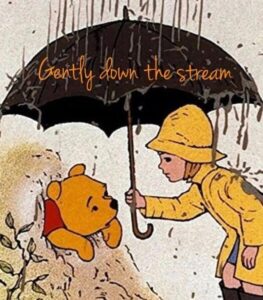A bouquet of Aphorisms

An aphorism is not just a string of words, but purest distillation of mind and insights contemplating itself.
A strong aphorism seduces,surprises and sinks in like a quickly digested morsel.
Popularity
Literary history of aphorisms are as old as humanity. Many literary laureates have tried their part in creating such short aphorisms, that are the bedrock of insights.
Ancient folks, who had the luxury of time, were less educated. So they benefited from the brief portrayals, that could be easily assimilated.
Short and condensed philosophy of insights is more suited for the modern men, who though educated are time-crunched for descriptive prose.
Definition
Technically, aphorism is a brief perspective about true human experience that is being conveyed in a precise manner.
An aphorism, Nietzsche wrote, is an audacity
A better description from James Geary
Aphorisms are literature’s hand luggage.
Light and compact, they will fit easily into the overhead compartment of your brain and contain everything you need to get through a rough day at the office or dark night of the soul.
One can learn about the vast collection of aphorisms from literature, mythology and religious writings. It is nearly impossible to comb through all of them, let alone jot them down.
From the plethora of aphorisms, selecting a few.
About perseverance
If anything they want young children to learn about at school, it would be about the significance of persistence and perseverance.
In 1841, the G & C Merriam company of Springfield, Massachusetts, published, The village reader, a compilation of literary works to be used in the instruction of primary students.
It included a poem by Thomas H palmer,
Tis a lesson you should heed,
Try, try again;
If at first you don’t succeed,
Try, try again.
Was Palmer the original author, we don’t know for certain, but the saying went on to history’s popular admonition
If at first you don’t succeed, try, try again.
Inspired parodies
Imitation is an undeniable craft, so the craftsmen put forward their best efforts and the results were not at all disappointing.
If at first you don’t succeed, you’re running about average.
If at first you don’t succeed, skydiving is not for you.
If you don’t succeed, destroy all evidence that you tried.
If at first you succeed, try to hide your astonishment.
Altered versions
If at first you don’t succeed, failure may be your style – Quentin Crisp.
If at first you don’t succeed, try reading the instructions – Evan esar
If at first you don’t succeed, try, try again. Then give up. There’s no use in being a damn fool about it – W C fields
If at first you don’t succeed ,lie, lie again – Laurence J Peter
If you don’t have anything good to say
US president Theodore Roosevelt’s daughter Alice was popular for her wild conduct and antics, hence was a darling of the media and ever eager paparazzi. Alice was famously called Washington’s Other Monument. A colourful woman with a caustic wit and gossip.
At her drawing room,she had a velvet cushion embroidered with the saying,
If you haven’t got anything good to say about anyone, come sit by me.
The saying is brief, definitive, reflecting her personal philosophy of life and with a clear twist in the end “If you can’t say anything good about somebody, don’t say anything at all”.
Existential crisis
At some point or other people from time immemorial have stumbled upon the dilemma of deciphering the purpose of life, trying to make sense of the suffering one has to endure, wondering how to cope and find meaning amidst all the miseries.
This existential crisis has been dealt with great compassion and clarity by various religious, philosophical and spiritual teachings.
A couple of aphorisms, explaining the same,
Neitzcha’s philosophy
If we have our own why of life
We shall get along with any how
This passage from Nietzsche’s Twilight of idols implies a meaningful philosophy to guide your life, to endure whatever the future has in store for.
Viktor Frankl, a psychologist and an author, who survived the worst nightmarish ordeals in the Nazi concentration camp, later wrote in his best-seller Man’s search for Meaning,
He who has a why to live for, bear almost any how.
Sceptical about friends
Benjamin Franklin, as a young man learned a hard lesson by confiding in several friends only to discover that his plans were leaked to adversaries.
If you would keep your secret from an enemy, tell it not to a friend
A similar sentiment was expressed by the eleventh century philosopher Solomon Ibn,
There are three types of friends : those like food without which you can’t live,
those like medicine which you need occasionally, and
those like an illness which you never want.
Listen to the Backbiters
If you hear that someone is speaking ill of you, instead of trying to defend yourself, you should say as Epictetus affirmed,
He obviously does not know me very well, since there are many other faults he could have mentioned.
Epictetus well grounded practical advice has been followed by many
Federick the great responded, saying
I think satire like Epictetus : If people speak ill of you, and it is true, amend yourself ; if a lie, laugh at them.
Planning to diet
Henry Leigh, a poet during the 18th century wrote a poem, or a piece of advice for those who are planning to lose weight.
If you wish to grow thinner, diminish your dinner
And take to light claret instead of pale ale
Look down with an utter contempt upon butter
And never touch bread till it’s toasted-or stale.
Stages and ages of life
Many observations about the stages and ages of life will help you look at your life and the lives around you in a more prosperous, broader and appreciative way.
Looking back, what inspired each of them, for their unique observation about ageing.
Take care of yourself
Eubie Blake, a well-known musician, was born into a less privileged black family. When his parents recognised his talent at a young age, they supported him substantially. Although he had smoked since childhood, he lived to be ninety-six years old. On his ninetieth birthday, answering to a reporter, he said,
If I’d known I was going to live long
I’d have taken better care of myself.
If you rest, you rust
A 17th century English theologian Richard Cumberland wrote,
It is better to wear out than to rust out.
There will be time enough for repose in the grave.
Nurture your artistic inclinations
Charles Darwin in his memoir recalled,
If I had to live my life again, I would have made a rule to read some poetry and listen to some music at least once every week; for perhaps the parts of my brain now atrophied would thus have been kept active through use.
Spectrum of life
William Durant offered his observation in his book The pleasures of philosophy that
each age, like every individual, has its own characteristic intoxication.
If play is effervescence of childhood and love is the wine of youth, the solace of age is understanding.
Modern World,changing perspectives
Humanity has progressed so far; our thoughts and mindset have been tremendously altered by modernity.
N.N.Taleb
Nassim Nicholas Taleb has exceptionally well captured all traits and essence of modern life in his book of aphorisms, The Bed of Procrustes: Philosophical and Practical Aphorisms.
Taleb’s insights are sharp, amusing, a bit crazy and insanely thought-provoking.
The person you are most afraid to contradict is yourself.
You will never know for sure if someone is an asshole until he becomes rich.
Charm is the ability to insult people without offending them; nerdiness the reverse.
Virtue is when the income you wish to show the tax agency exceeds what you wish to show your neighbour.
Just as eating cow meat doesn’t turn you into a cow, studying philosophy doesn’t make you wiser.
There are three types of large corporations : those about to go bankrupt, those that are bankrupt and hide it, those that are bankrupt and don’t know it.
Those with brains and no balls become mathematicians, those with balls and no brain join the Mafia, those with no balls and no brains become economists.
When you cite some old wisdom – style quote and add “important truth”, “to remember ”, or something to live by ”, you are not doing so because it is good, only because it is inapplicable. Had it been both good and applicable you would not have had to cite it. Wisdom that is hard to execute isn’t really wisdom.
At any stage, humans can thirst for money, knowledge, or love ; sometimes for two, never for three.
Taleb’s intellectual wisdom is seamless and would recommend this book to those who are enthusiastic regarding the same.









Loved reading?
Thank you, Meena, for the encouragement.